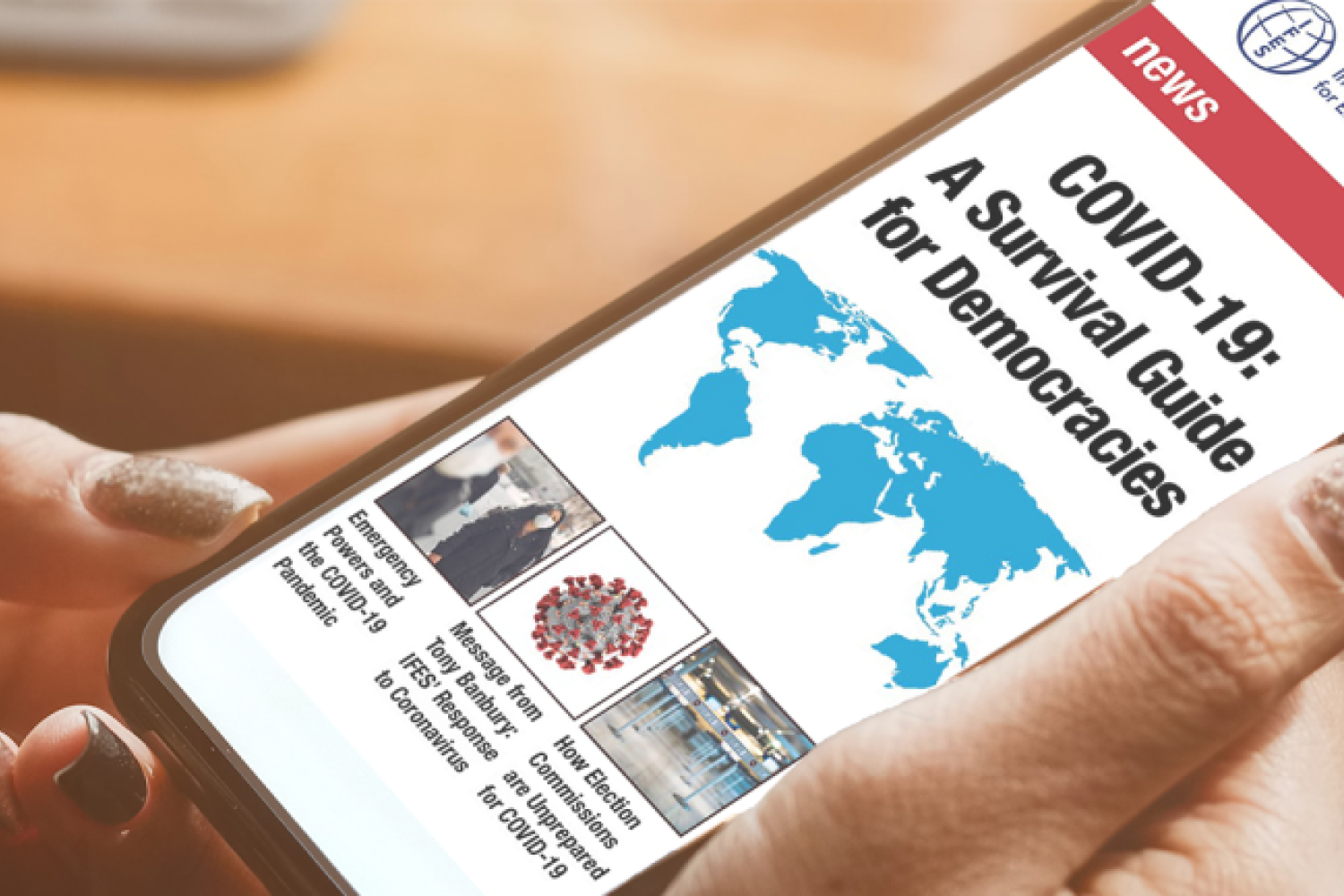
Global Impact of the Americans with Disabilities Act on Its 30th Anniversary
The Americans with Disabilities Act (ADA) is a civil rights law that provides protections to Americans with disabilities, similar to other U.S. laws that provide protections to individuals on the basis of race, sex, national origin, age and religion. This year is the 30th anniversary of this landmark legislation. The ADA provided the basis for the United Nations (UN) Convention on the Rights of Persons with Disabilities, an international treaty that has been ratified by 94 percent of UN member states.
The ADA provides protections for all aspects of voting, including voter registration, polling station accessibility, assistive devices to support casting of ballots and the provision of alternative measures, such as curbside voting and postal voting. These types of alternative measures have not only expanded the franchise to voters with disabilities, but in the current COVID-19 context, states that had postal voting measures in place for people with disabilities were able to quickly scale up this provision for all voters concerned with voting in person. The International Foundation for Electoral Systems (IFES) outlined these measures, and other ways voters with and without disabilities have been impacted by the pandemic, in its COVID-19 Briefing Series: Inclusion and Meaningful Political Participation. Judith Heumann, a pioneer of the U.S. disability rights movement, wrote the foreword for the paper.
The following was originally published as the foreword for the IFES COVID-19 Briefing Series: Inclusion and Meaningful Political Participation.
My parents were German Jewish refugees to the United States. I had polio in 1949 and have been unable to walk my entire life. My parents always drummed into my head that I had the same responsibilities as my brothers. I knew that I must vote and that my vote should be an informed one. Over the years, I have faced discrimination because of my disability. I was denied the right to go to school when I was 5 because I was a “fire hazard.” I lived in Brooklyn, but could not ride a bus or a train because they were not physically accessible. I was denied my first major job as a teacher because I couldn’t walk. After I successfully sued, I taught for three years.
When I was 18 years old, I went to vote. However, I couldn’t go by myself because our polling place was up four steps. My father had to pull my wheelchair up the steps and then had to help me in the voting booth. There was no one else who could help me and no provisions for me to vote on my own. At that point, there was a very small disability rights movement both in the U.S. and internationally. Hundreds of millions of people with all types of disabilities had been denied the opportunity to fully participate in our communities because of discrimination. Democracies were failing us. We had to come together at the local, national, regional and global level to remove the barriers to participation in political life.
Learning what other disenfranchised groups had been doing to obtain their rights was an example of what was possible globally. I learned from the civil rights movement that the right to vote was being denied to people because they were Black; and that women in the U.S. and countries around the world had been denied their right to vote. I also learned that laws had been passed to enable all people to participate in the political process. Learning about how other people had organized and the years it had taken for some groups to be granted the right to vote was an important lesson for me and others.
Learning what other disenfranchised groups had been doing to obtain their rights was an example of what was possible globally.
The birth of the global disability rights movement ultimately resulted in the introduction of the UN Convention of the Rights of Persons with Disabilities. Article 29 of the treaty is focused on participation in political and public life and guarantees political rights and the opportunity to enjoy them on an equal basis with others. Progress has been made on implementing Article 29, including resulting in more people with various types of disabilities, living in rural and urban communities finally getting to participate in elections. The disability community has been working side by side with other marginalized groups in countries around the world. The growing acknowledgment by governments that all people have the right to participate in the planning of elections to ensure accessibility to voting and running for office has been critically important. We cannot allow this pandemic to be an excuse for rolling back participation.
Unfortunately, many people still see us as second-class citizens. The COVID-19 pandemic has exacerbated existing barriers. The authors of this paper have provided concrete recommendations for government and civil society to take in order to ensure everyone has access to the political process.
It is incumbent upon us all to ensure that we oppose efforts from governments to suppress the right of people to vote or participate in the political process. Together we will be vigilant and outspoken. We must not allow others to use the pandemic as an excuse to take away our rights.
Judith Heumann, International Disability Rights Advocate, Senior Fellow Ford Foundation (2017-2019), Special Advisor for International Disability Rights, U.S. Department of State (2010-2017)
To learn more, RSVP for the Virtual U.S. Election Program! Once you do, you’ll be able to watch videos about the right to vote in the U.S. on demand.
Published on October 22, 2020.













